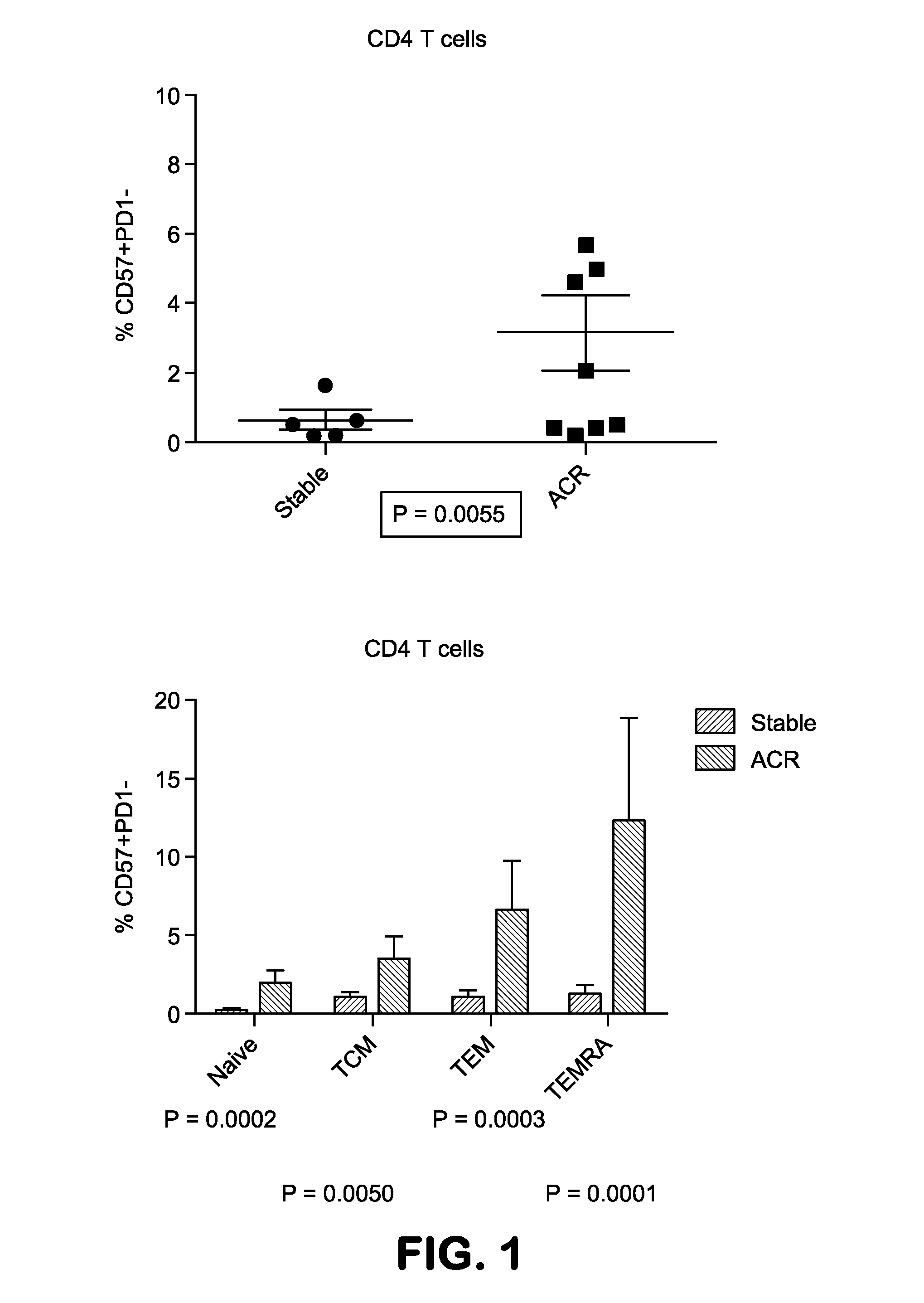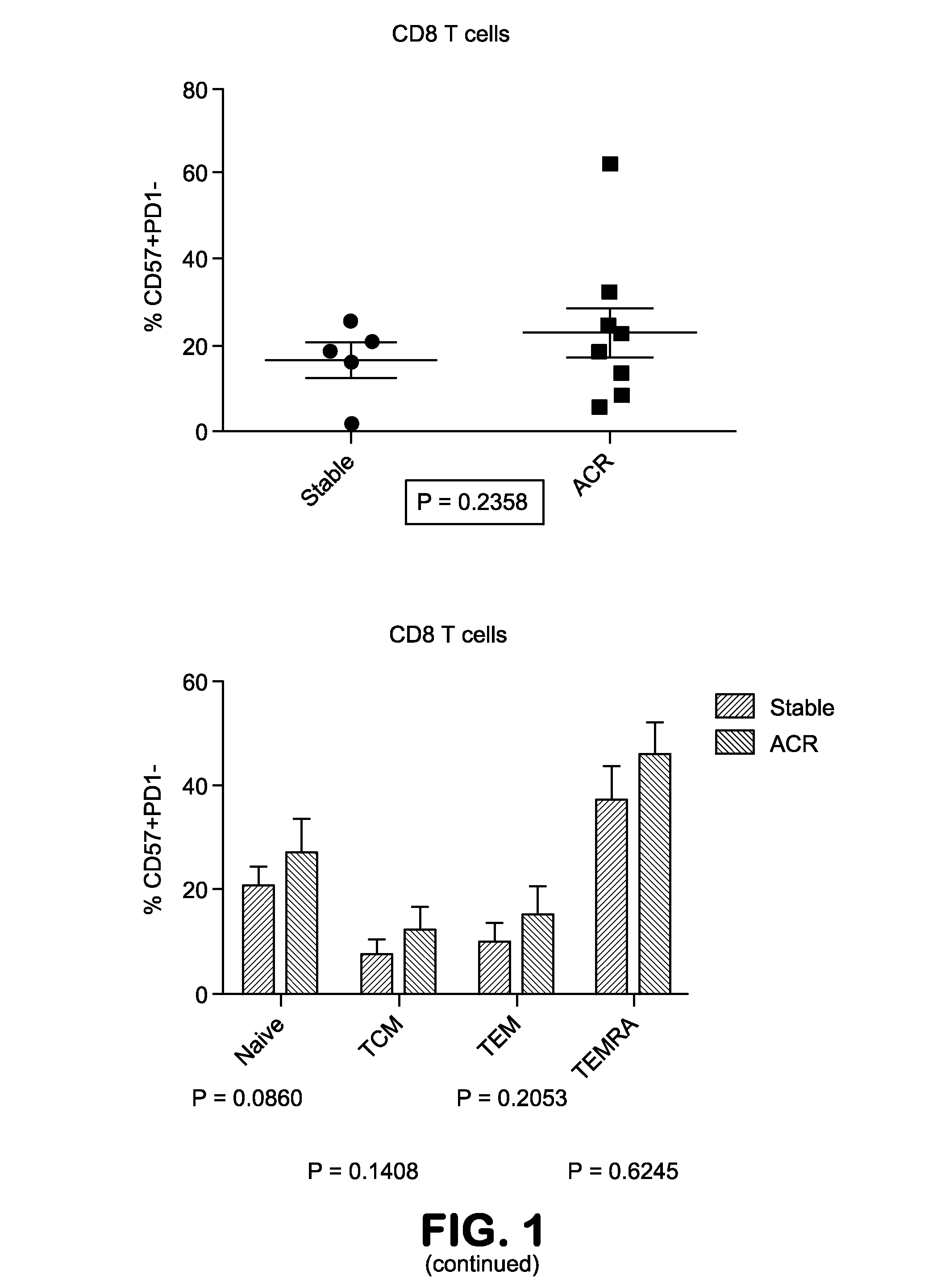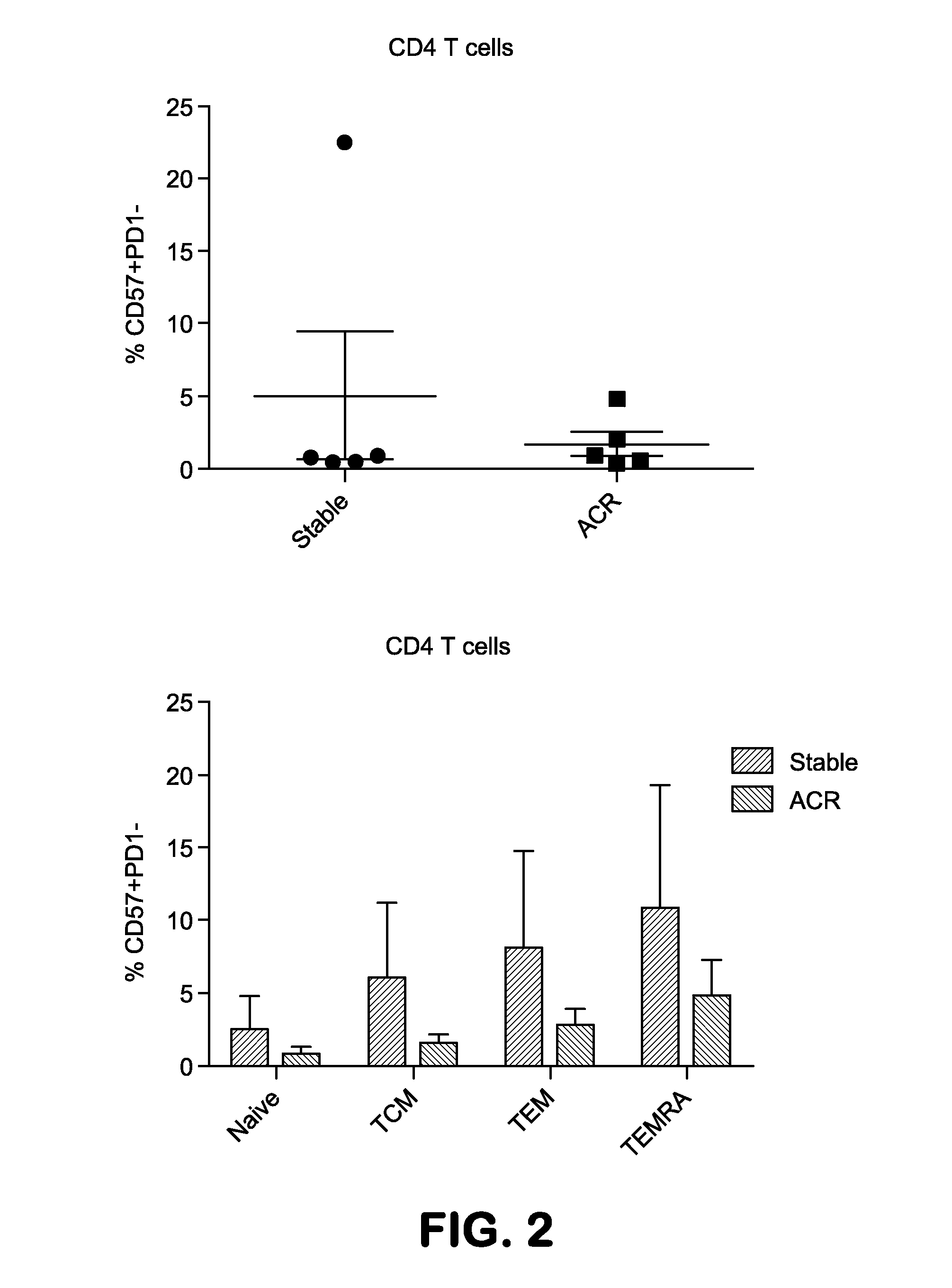Methods for identifying patients at risk for costimulation blockade resistant rejection
a technology of costimulation blockade and patient risk, applied in the direction of instruments, biological material analysis, measurement devices, etc., can solve the problems of no predictive assay to identify patients at risk of costimulation blockade resistant rejection, and the recipient is at greater risk of complications and graft loss
- Summary
- Abstract
- Description
- Claims
- Application Information
AI Technical Summary
Benefits of technology
Problems solved by technology
Method used
Image
Examples
example 1
[0054]Early costimulation blockade resistant rejection has been seen in some patients on belatacept-based immunosuppression. Hypothesizing that T cell phenotype might prospectively identify patients at risk for costimulation blockade resistant rejection, patients receiving belatacept-based costimulation blockade, were studied by specifically quantifying terminally differentiated memory cells expressing CD57, a marker of T cell senescence, and relating this expression to clinical outcome.
[0055]Methods: Samples from renal allograft recipients receiving belatacept-based immunosuppression were selected from an IRB-approved tissue acquisition protocol.
Study Population:
[0056]Organ transplant recipients, candidates for organ transplantation, and their organ donors under evaluation at the Emory University Hospital / Emory Transplant Center (Emory) or Children's Healthcare of Atlanta (CHOA) were considered for study.
Inclusion Criteria:
[0057]Recipients of or candidates for organ transplantation...
PUM
 Login to View More
Login to View More Abstract
Description
Claims
Application Information
 Login to View More
Login to View More - R&D
- Intellectual Property
- Life Sciences
- Materials
- Tech Scout
- Unparalleled Data Quality
- Higher Quality Content
- 60% Fewer Hallucinations
Browse by: Latest US Patents, China's latest patents, Technical Efficacy Thesaurus, Application Domain, Technology Topic, Popular Technical Reports.
© 2025 PatSnap. All rights reserved.Legal|Privacy policy|Modern Slavery Act Transparency Statement|Sitemap|About US| Contact US: help@patsnap.com



